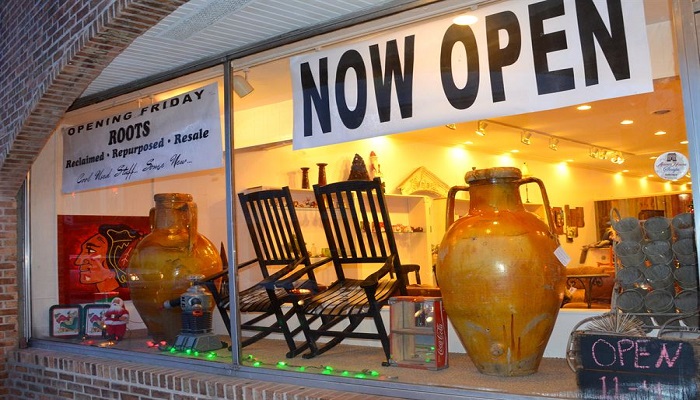Eventually, many resellers come to a point where their business has expanded beyond the small-scale business it once was. Although most resellers start by selling their items at flea markets or over the Internet, eventually many begin to gather so many goods that this becomes less feasible. For the full-time reseller, a brick-and-mortar shop can be very appealing – and lucrative.
Before you start your own thrift store, however, there are many things to take into consideration. Moving your small business into a larger scale operation can be exciting and profitable, but it's not the right choice for everyone. Take some time to consider the pros and cons of a store before going to the trouble of opening one.
PROS:
-
You have access to new customers who might not be shopping online or frequenting the same swap meets or yard sales that you usually sell through.
-
You'll have plenty of space to store merchandise so your home won't get cluttered and you can save money on storage units of your own.
-
You don't have to worry about repeated trips to the post office or calculating shipping for orders the way you would with an eBay store.
-
You can hire staff to help manage the store while you search for more items for sale.
-
People may start coming to you with items they wish to sell, which can help increase your inventory without needing to actively search for things.
-
You can continue running sales through virtual channels or swap meets and use those sales as free advertising for your main store.
CONS:
-
You need to lease the building, which greatly adds to your overhead.
-
You'll need liability insurance for the business to protect you in case anyone falls or is otherwise injured at your store.
-
If you hire employees, your taxes will become more complicated than if you were running a sole proprietorship.
-
You will also be expected to provide certain wages and benefits to your employees depending on the business's size and your state's laws.
-
Brick-and-mortar resale businesses aren't as flexible as virtual shops, and you'll be tied down to that location for quite some time.
Before you make any decisions about the future of your resale business, you should take a hard look at your profits and talk the choice over with your accountant. He or she can help you decide whether you're ready to expand or if expanding is even a viable option for your business.

